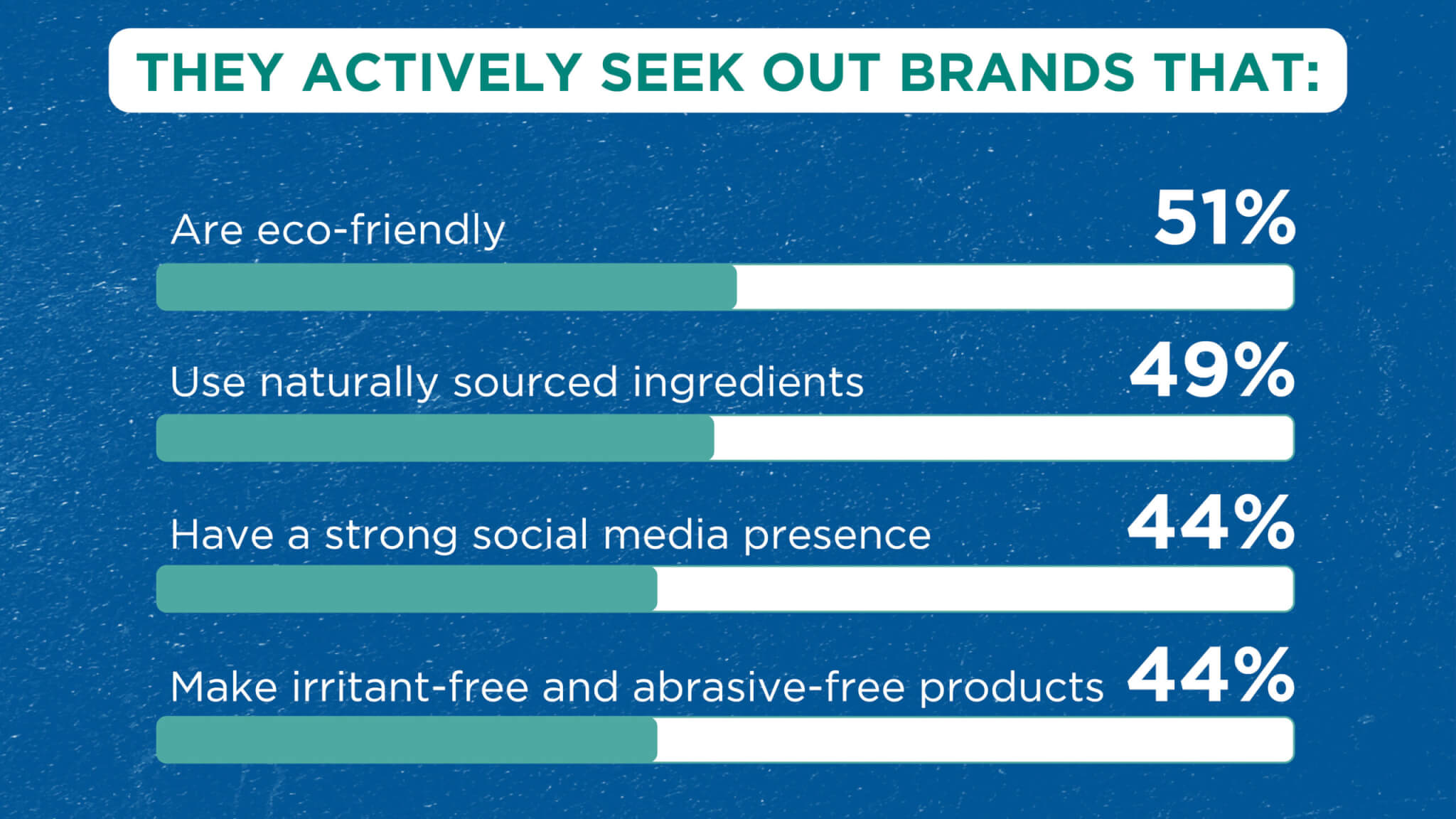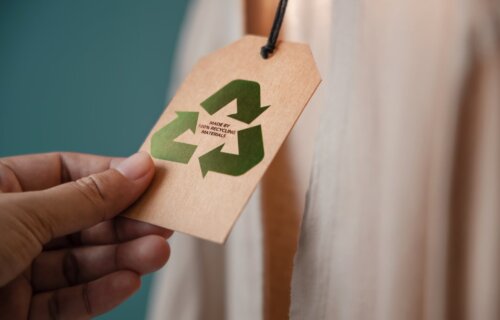NEW YORK — Most Gen Z and millennial shoppers prefer to buy from ethical brands they believe genuinely care about people and the planet, according to a new survey. A new poll of 2,000 U.S. young adults found that younger Americans feel brands need to be held to a higher standard — 80 percent are likely to base their purchases on a brand’s mission or stated purpose.
When shopping, many actively seek out eco-friendly brands (51%), use naturally sourced ingredients (49%), and have a strong social media presence (44%).
Commissioned by Tom’s of Maine and conducted by OnePoll, the survey also found that nearly four in five (78%) said it’s important to them to buy products that are organic, natural, and environmentally conscious, and 82 percent make an effort only to buy products that use naturally sourced or naturally derived ingredients.
Beyond products, 74 percent of respondents shared they are likely to boycott brands for crossing an ethical line and going against their values. Those surveyed said they’d willingly boycott brands that mistreat or underpay workers (61%), use or mistreat animals for production and testing (59%), are considered “corrupt” (58%), or are associated with racism/non-inclusiveness (51%).
“Now more than ever, consumers are looking to buy from brands that are not just talking about change, but creating it,” says associate brand manager for Tom’s of Maine, Mallory Strange, in a statement. “These insights show that Millennials and Gen Z shoppers are increasingly intentional with their purchase decisions, making transparency, sustainable practices, and community engagement critical to attracting customers and creating a brighter future for all people.”

While sustainability is front of mind for Gen Zers and millennials while shopping, a quarter said the quality of products was the most important aspect to consider before making a purchase decision.
A large majority (85%) would rather spend money on something expensive, but of higher quality, than something cheap and lower quality. Nearly 60 percent said they frequently look at a product’s label and ingredients list before purchasing.
Meanwhile, 78 percent of those surveyed said they would be willing to go over their budget to buy products they love, with the most appealing types of purchases being clothing (51%), clothing accessories (46%), food (43%), and self-care (41%).
When asked what specific products they would spend more or less money on, respondents said they’d spend more on toothpaste (74%), deodorant (70%), home décor (71%), and entertainment (70%), and less on phones (38%), shampoo/conditioners (36%), and clothing (35%).
When making clothing purchases specifically, 59 percent prioritize comfort over style, while 23 percent prioritize style over comfort.
“People shouldn’t have to compromise quality when choosing products, especially in personal care,” adds Strange. “One way to do that is to look for products made by Certified B Corporations. The B Corp certification is a leading corporate standard for transparency, accountability, social responsibility, and environmental performance that is managed by the nonprofit organization B Labs.”
Survey methodology:
This random double-opt-in survey of 2,000 Americans aged 18 – 26 and 27 – 42 was commissioned by Tom’s of Maine between June 28 and July 7, 2023. It was conducted by market research company OnePoll, whose team members are members of the Market Research Society and have corporate membership to the American Association for Public Opinion Research (AAPOR) and the European Society for Opinion and Marketing Research (ESOMAR).


Bernays described this elitist view of the world in 1928:
“Those who manipulate the unseen mechanism of society constitute an invisible government which is the true ruling power of our country. We are governed, our minds are molded, our tastes formed, our ideas suggested, largely by men we have never heard of. This is a logical result of the way in which our democratic society is organized. Vast numbers of human beings must cooperate in this manner if they are to live together as a smoothly functioning society. In almost every act of our lives whether in the sphere of politics or business in our social conduct or our ethical thinking, we are dominated by the relatively small number of persons who understand the mental processes and social patterns of the masses. It is they who pull the wires that control the public mind.” – Edward Bernays – Propaganda
Any of the certificates, “Organic” “Additive free” etc. etc. can be bought for money. All of those labels are nonsense. But the Shekels keep rolling in.
Moronic sheep, the lot of them, without the slightest idea of how the world operates.